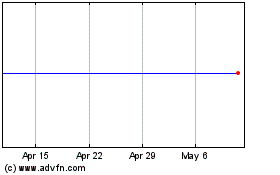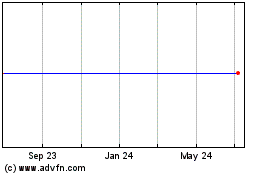Roche CEO Touts Pipeline, Remains Open To More Deals
March 17 2010 - 6:53PM
Dow Jones News
Roche Holding AG (RHHBY, ROG.VX) Chief Executive Severin Schwan
said the integration of its $46.8 billion takeover of Genentech
Inc. is "by and large completed," expressed his confidence in the
Swiss drug giant's pipeline, and said he remains open to yet more
deal-making.
His comments came in an interview the day before Roche is set to
hold a major investor meeting amid the bustle of Wall Street, a
location that highlights the importance of its year-old takeover of
the South San Francisco biotech bellwether, which has held similar
gatherings in recent years.
At the meeting, Roche will detail the promise of its
pipeline--which has faced some recent disappointments--for the
first time since buying Genentech. But after completing the biggest
deal in the company's history, Schwan said that he is open to
"small and mid-size deals."
"We want to continue to tap into the innovation from outside of
the company," he said, noting that Roche signed 65 partnership
transactions last year.
He declined to comment on any potential interest in buying OSI
Pharmaceuticals Inc. (OSIP), which is a partner with Roche in
selling its only product, cancer treatment Tarceva, which had
worldwide sales of $1.2 billion in 2009.
OSI has resisted a hostile $3.5 billion takeover attempt from
Japan's Astellas Pharma Inc.'s (ALPMY, 4503.TO) as too low, and has
begun to talk with other companies, seeking a higher bid.
Schwan said the integration of Genentech has been smooth because
of the complimentary aspects of the two companies.
The two companies had an 18-year affiliation and Roche had very
little overlapping operations. Schwan said that personnel turnover
at Genentech was better than before the deal, although he conceded
that there are retention plans in place.
He said the company hasn't lost any of its top scientists and
that Genentech workers have adjusted well to Roche's
"decentralized" management style.
In terms of its pipeline, Schwan highlighted Roche's late-stage
cholesterol treatment, called dalcetrapib, which the company plans
to file for regulatory approval in 2013.
"It will change how we treat lipid diseases," he said. "If it is
positive, it will show an improvement in terms of morbidity and
mortality."
The drug aims to raise so-called good cholesterol more
effectively than existing drugs and may reduce the risk of heart
attacks and related disease.
If it is successful, Schwan said he believes that the drug will
be the first weapon used by physicians, putting it in the same
league as the biggest heart drugs on the market, including Pfizer
Inc.'s (PFE) Lipitor. That drug, which had 2009 sales of $11.4
billion, will likely be available in generic form by the time
dalcetrapib is launched.
But he warned that dalcetrapib is a "high-risk project" and its
true usefulness will only be known after the data are reviewed.
The drug is in the same class of drugs, known as inhibitors of
the cholesteryl ester transfer protein, or CETP, as Pfizer's
torcetrapib, a promising drug that was killed in 2006 after there
were safety concerns.
Schwan said that dalcetrapib doesn't have those same safety
issues, something that the company will explain in detail on
Thursday.
He also touted Trastuzumab-DM1, or T-DM1, a follow-up to the
company's hugely successful cancer treatment Herceptin and said it
could be filed for accelerated approval in the U.S. by year-end.
Herceptin had 2009 sales of almost $5 billion.
Schwan said the drug is more effective than Herceptin and is
important in managing the life cycle of that drug, which will lose
its patent protection in some parts of the world in the middle of
this decade.
Trastuzumab-DM1 is a new type of drug called an antibody
conjugate that has Genentech's blockbuster cancer drug Herceptin
attached to a cell-killing drug made by Immunogen Inc. (IMGN). The
idea is to seek the cancer with the antibody, then kill it.
In recent weeks, Roche reported that best-selling cancer drug
Avastin, a key component of the Genentech deal and a future source
of growth, missed goals for two cancer indications, causing some
analysts to lower their long-term revenue expectations.
Also, its experimental drug ocrelizumab, in development with
Biogen Idec Inc. (BIIB) as a follow-up to blockbuster Rituxan, also
has proved disappointing after programs for lupus and rheumatoid
arthritis were recently suspended due to safety concerns.
-By Thomas Gryta, Dow Jones Newswires; 212-416-2169;
thomas.gryta@dowjones.com
(Goran Mijuk and Peter Loftus contributed to this article.)
Osi Pharmaceuticals (NASDAQ:OSIP)
Historical Stock Chart
From Mar 2024 to Apr 2024

Osi Pharmaceuticals (NASDAQ:OSIP)
Historical Stock Chart
From Apr 2023 to Apr 2024
